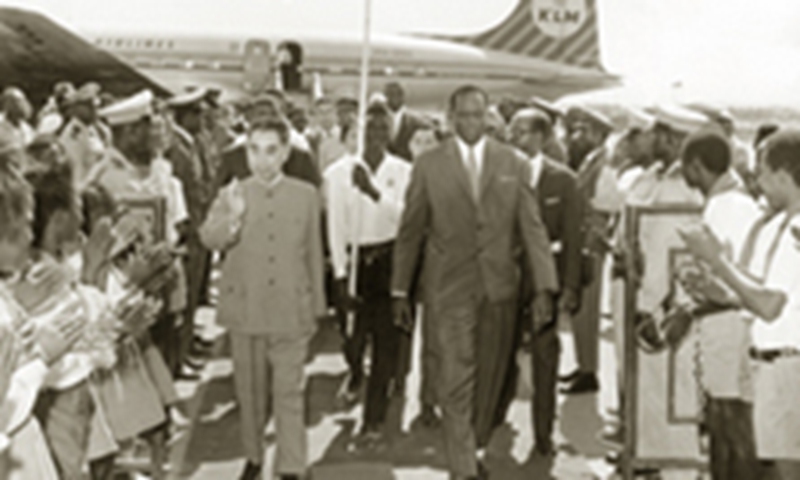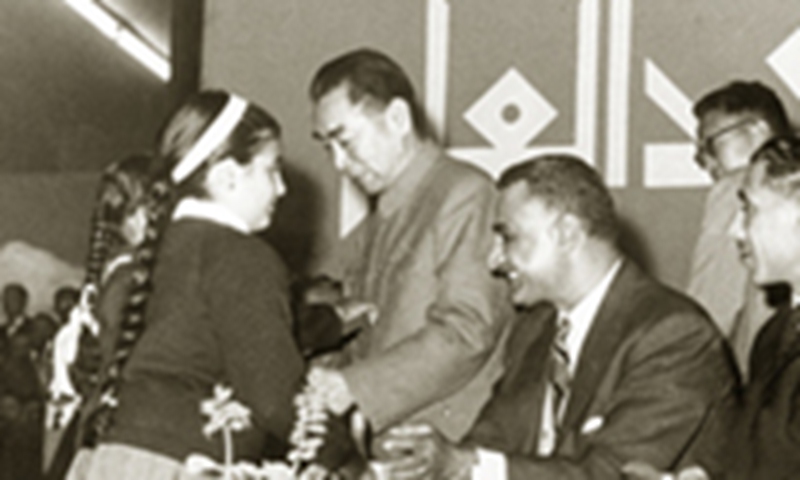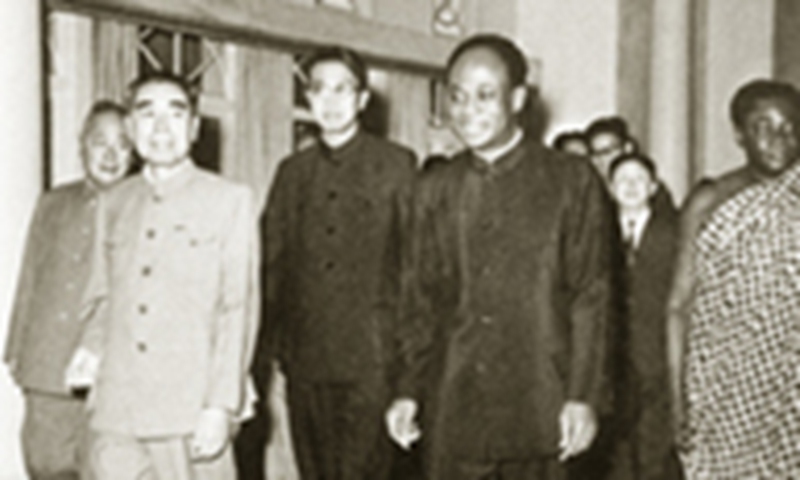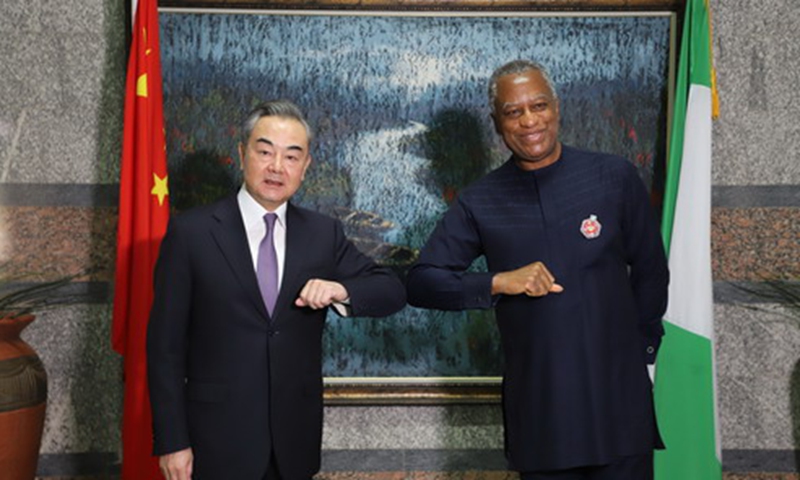From December 14, 1963 to February 4, 1964, at the invitation of heads of state or government of the United Arab Republic (now Egypt), Algeria, Morocco, Tunisia, Ghana, Mali, Guinea, Sudan, Ethiopia and Somalia, Premier Zhou Enlai led a Chinese delegation to pay official goodwill visits to these countries. It was the first time for a Chinese state leader to visit Africa. The purpose of the trip was to deepen China-Africa friendship, support Africa's national liberation movement, expand China's international influence, and break new ground in China's diplomatic work.

Malian President Modibo Keita welcoming Premier Zhou Enlai at the airport
About halfway through the trip and several days before visiting Ghana, there was an aborted coup in the country. Ghanaian President and anti-colonialist fighter Kwame Nkrumah was wounded, and the capital Accra was in a state of insecurity and anxiety. For security concerns, some in the Chinese delegation suggested canceling or delaying the trip to Ghana. But Zhou insisted that out of respect for friends and friendship between the two countries, the visit should go ahead as planned. He said, "The visit should not be canceled just because Ghana is in temporary difficulty. Otherwise it would indicate that we do not respect or support the country. The trip should be made as planned, and only in this way can we demonstrate our sincerity — a friend in need is a friend indeed. As for the specific arrangements, normal diplomatic protocols don't need to be followed."
Zhou sent a special message of sympathy to Nkrumah, and sent accompanying Vice Foreign Minister Huang Zhen to go to Ghana before the arrival of the delegation, bringing there three suggestions on the arrangements: first, for the security of leaders of both countries, all diplomatic protocols could be simplified; second, no visit will be made outside the capital; third, the Ghanaian side may designate security officers to contact the Chinese embassy for specific security arrangements.
Prior to that, Nkrumah thought the visit would be canceled just as what happened following the previous assassination attempt against him, when the leader of another major Asian country (Indian Prime Minister Jawaharlal Nehru) canceled a visit. He was overjoyed and deeply moved upon learning that Zhou insisted on making the visit.

Premier Zhou Enlai with President Gamal Abdel Nasser during his visit to the United Arab Republic
On January 11, 1964, Zhou arrived in Accra as scheduled. As agreed by both sides, all meetings and receptions were held in Christiansborg Castle where Nkrumah lived. Nkrumah had planned to hold welcome and farewell ceremonies at the airport, but Zhou suggested canceling them for the sake of the president's security and health. Zhou's broad-mindedness without obsession with formalities and his empathy with the host deeply touched Nkrumah. He said, from the bottom of his heart, that Zhou was the best friend of the Ghanaian people and his visit was the best ever paid by any foreign leader.

Premier Zhou Enlai with Ghanaian President Kwame Nkrumah
Premier Zhou's sincere friendship with the people of Ghana and other African countries helped China win trust, respect and friendship from Ghana and the whole African continent.
Over decades, China-Africa ties have grown from strength to strength. On March 25, 2013, President Xi Jinping used "sincerity," "real results," "affinity" and "good faith" to describe China's relations with Africa in his speech at Tanzania's Julius Nyerere International Convention Center. He said that "in treating African friends, we stress the importance of sincerity; in conducting cooperation with Africa, we stress the importance of real results; in strengthening China-Africa friendship, we stress the importance of affinity; and in resolving problems that may crop up in cooperation, we stress the importance of good faith."
This commitment has been reinforced. On January 4-9, 2021, State Councilor and Foreign Minister Wang Yi visited five African countries, sustaining the 31-year-long diplomatic tradition that the Chinese foreign minister makes Africa the first destination of overseas trip every year. This shows that the China-Africa traditional friendship has been enhanced in the new era. It reflects the profound friendship forged by the elder generation of Chinese and African leaders as they shared weal and woe and overcame difficulties together. It also demonstrates China's great emphasis on and firm commitment to deepening relations with Africa.
Today, China-Africa relationship is on the fast track of all-round growth, with remarkable progress in various areas of cooperation. The two sides have established the Forum on China-Africa Cooperation and fostered the comprehensive strategic and cooperative partnership. With deepening cooperation on economy, trade, and people-to-people and cultural exchanges, and with mutual support on issues concerning each other's core interests and major concerns, a new chapter is unfolding in China-Africa relations.

On January 5, 2021, State Councilor and Foreign Minister Wang Yi paying an official visit to Nigeria and holding talks with Foreign Minister Geoffrey Onyeama.







